Water truly is the fountain of health. About 60% of the human body comprises of water; no wonder we can only last a few days without it. Drinking enough each day helps to stave off dehydration, which is crucial for your overall wellbeing. Dehydration hinders physical performance, along with digestion, kidney, and heart function. And these complications can increase your susceptibility to infection (1).
Try to drink at least 1.5 litres or eight glasses of water every day – more if you’re active. A simple rule of thumb is to look at your urine: aim for a colour that resembles light yellow to transparent.
Not all drinks are created equal Nothing beats good old-fashioned water. Although fizzy drinks, juice, tea, and coffee are ostensibly hydrating, they don’t quite pack the nutritional punch water does. Juice and fizzy drinks are full of calories and high in sugar. And caffeinated beverages, like tea and coffee, are diuretics, which means they cause the body to lose fluids. Why not swap your third coffee for a hydrating herbal tea?
Tips to guzzle more water Have two glasses of water as soon as you wake up in the morning
Set an alarm every hour to get up from your desk and drink a glass of water
Add lemon, orange slices, mint or cucumber for flavour
Buy a 600ml reusable water bottle: have one finished by lunchtime and another by the end of work, then top yourself up by dinner.
Your diet and your immune system
Never before has grabbing an on-the-go sub, microwave meal or take-away been more appealing or available. The result: we’ve become an overfed yet undernourished nation. The truth is highly processed, modern diets conspire to hijack the immune system. Cleaning up your eating
What are ‘wholefoods’? Wholefoods educate the immune system. These nutritional nuggets are minimally processed, in as close to their natural form as possible, and immediately identifiable (fruit looks like fruit, for instance). Conversely, highly processed foods comprise of refined carbs, unhealthy fats, free sugars, and salt. They’re also woefully poor sources of dietary fibre, micronutrients and protein. As such, try to fix healthy meals using real, wholefood ingredients: fish, meat, eggs, whole grains, legumes, plenty of vegetables, fruit, nuts, seeds and plenty of fresh herbs and spices. Eating this way ensures every calorie you consume is crammed with goodness.
Broccoli vs. biscuits Unlike a refined biscuit, which offers zilch nutritional value, broccoli lives up to its superfood reputation. This crunchy cruciferous veggie traverses down to the digestive tract, feeding your gut bugs, supporting immune function and bestowing various health benefits along the way. it’s no contest, really.
The five-ingredient rule Don’t become obsessed with counting calories. Instead, be an ingredient sleuth and live by this rule: limit your intake of shop-bought food products that contain more than five ingredients. By reducing your consumption of these foods, you’ll default to a healthier way of eating. Consider this: even though an avocado may have more calories than a fizzy drink, you can guess what’s healthier (…and which has more ingredients)?
Allow for the occasional treat Of course, we understand you may still be tempted by the allure of processed food, especially if you’re tired, working late, or at a social event. That’s fine, on occasion. Whatever the reason, accept this is a one-off and simply enjoy the pleasure of indulging. Just acknowledge that tomorrow is another day to get back on track with healthy wholefoods.
Tips to eat more wholefoods Try to remove all highly processed food from your house. Out of sight, out of mind, right? If you’ve purged your kitchen of highly processed foods, you’ll be less likely to stray.
Write a meal planner. Old school, but extremely helpful. When doing your weekly shop, buy the ingredients you need according to the meal planner.
Have a protein-dense breakfast to promote satiety. Protein helps you stay fuller for longer and prevents those mid-morning energy dips that can leave you hankering for unhealthy treats.
Keep an emergency snack pack with you at all times. Stash some nuts, dried fruit, oatcakes or homemade protein bars in your office, car and rucksack for when those food cravings beckon.
Keep frozen fruit and veggies in the house at all times. Perfect for smoothies, snacks, or bulking out meals.
Develop a repertoire of five simple meals you can quickly whip up. Flick through your favourite recipe books, browse food blogs, and pinch ideas from social media. Find five healthy recipes to form your kitchen mainstays.
Keep pre-chopped garlic and onion in the fridge. An excellent base for soups, stews, curries and much more. Plus, another incentive to cook healthy meals. (Because the thought of chopping onions and garlic isn’t always the most exciting.)
Make your kitchen an appealing environment. Keep it tidy, play your favourite music, adorn with flowers and plants, display colourful cookbooks, or organise your pantry with beautiful glass jars. Do whatever you need to make the prospect of cooking in your kitchen fun and desirable.
Essential nutrients for your immune system
Besides making an effort to un-process your diet, there are certain foods you should try to eat in abundance thanks to their unique role in immunity. Indeed, like any fighting force, your immune system needs proper nutrition and fuel. To supercharge your natural defences, pack more of these powerhouses into your daily regime.
Vitamins and Minerals
Vitamin C When you think immunity, you often think vitamin C. A, vitamin C is widely known for contributing to the normal function of the immune system. Vitamin C is an essential vitamin. This means your body can’t produce it; you need to obtain it from your diet.
Eat it: Vitamin C-rich foods, such as broccoli, peppers, kiwi fruits and, of course, everyone’s sickbed essential: oranges. A word of caution: cooking can quickly destroy the nutritional credentials of this powerhouse; serving raw is always favourable.
Zinc Involved in hundreds of processes in the body, zinc is a critically important mineral for health. Crucially, zinc contributes to the normal function of the immune system. Beyond this, zinc also contributes to the maintenance of normal skin, which is a physical barrier against infection.
Eat it: Shellfish, beans, whole grains and nuts and seeds are rich sources of zinc. Did you know oysters are unusually high in zinc, delivering a staggering 32mg in 6 medium oysters?
Beta-carotene/Vitamin A Hailed as one of the most extraordinary antioxidants, beta-carotene is a popular choice for many reasons. Once consumed, the body converts beta-carotene into vitamin A according to its needs. Amongst its credentials, vitamin A helps maintain the normal function of the immune system and the skin. As we’ve already mentioned, the skin is an important component of your body natural defences.
Eat it: Beta-carotene is responsible for the vibrant yellow, red and orange hues of some fruit and veggies. While carrots are often revered for their beta-carotene content, sweet potatoes, squash, cantaloupe melon, red and yellow peppers, and apricots are also good sources. Aside from foods rich in beta-carotene, you can also obtain vitamin A directly from animal sources, like oily fish, liver, cheese and butter.
Vitamin D Synthesised when sunlight directly hits the skin, vitamin D serves an array of vital functions in the body. Perhaps one of the most important is its role in immunity, as vitamin D contributes to the normal function of the immune and healthy inflammatory response. Indeed, low vitamin D levels are increasingly implicated in many health conditions. Worryingly, our modern ‘indoor’ lives and cloudy climate mean low levels of vitamin D are widespread amongst the UK population.
Eat it: Undoubtedly, the best way to obtain vitamin D is from sunlight. But you can also find small amounts of the ‘sunshine nutrient’ in salmon, sardines, egg yolks, prawns and fortified foods, like cereal, yoghurt, milk and orange juice. If you don’t get enough sun exposure and have a limited intake of these foods, then consider a supplement. The Department of Health recommends a 10μg (400iu) supplement of vitamin D for everyone during the winter months.
Iron Iron and immunity are intimately linked. As well as supporting the reduction of tiredness and fatigue, iron also contributes to the normal function of the immune system. Changes in your iron status can affect the body’s immune defences in various ways, and so it’s crucial to ensure a regular and plentiful intake of this mineral.
Eat it: Meat, liver, beans, nuts, whole grains, dried fruit and dark green leafy veggies are excellent sources of iron. Top tip: vegetarians should try to achieve more than the Nutrient Reference Value (NRV) of 14mg per day, as plant-based (non-haem) iron is less readily absorbed than the form found in animal foods (haem iron). Women who lose a lot of blood during their monthly period are at a higher risk of iron deficiency and may need to consider supplementation.
Selenium Though a little under-the-radar, the trace mineral, selenium, deserves a mention in any discussions on immune health. Selenium forms an integral part of the free radical scavenging enzyme Glutathione Peroxidase, which serve a vital natural antioxidant function in the body. As such, selenium has become a popular choice for its role in contributing to the normal function of the immune system.
Eat it: Organ meats, seafood and Brazil nuts are some of the richest food sources of selenium. Did you know a single Brazil nut can deliver an impressive 68 to 91μg of selenium, depending on its place of origin? This means eating just one nut may pack the NRV of 60μg (women) 75μg (men)!
Vitamin K2 Vitamin K2 is a rising star with scientists, whose findings suggest this nutrient may play a critical role in immune health. Crucially, vitamin K2 is essential for optimal vitamin D intake, which – as we’ve established – is important for immunity. The problem is vitamin K2 isn’t widely available in our modern diets. Although less readily absorbed in the body, vitamin K1 is far easier to attain through dietary sources.
Eat it: You can find vitamin K2 in cheese, egg yolks, butter, liver and some fermented foods, like sauerkraut.
B vitamins This family of potent vitamins – niacin, vitamin B6, biotin, folic acid and vitamin B12 – all contribute to the normal function of the immune system. Often dubbed the ‘energy vitamins’, many of the B vitamins are central to normal energy metabolism, supporting a reduction in tiredness and fatigue, and thereby supporting immune health.
Eat it: Harness the power of B vitamins by increasing your intake of whole grains, dark leafy green vegetables, dairy and meat.
Best foods for your immune system
Ginger Famous for its zingy, spicy and warming properties, ginger is an excellent addition to your pantry. Thanks to its antioxidant properties, this herb is often recommended for the normal function of the immune system.
Eat it: You can destroy the active ingredients in ginger, zingerone and gingerol, through cooking and preservation. Where possible, enjoy this root raw. You could kick-start the day with a refreshing ginger juice shot or adding slices to herbal tea.
Garlic The base of any stew, soup and curry, garlic has long been used to support immune function. Whole garlic contains a compound called alliin; when it’s chewed or crushed, alliin transforms into allicin (with a ’c’), which is the main active ingredient in this nutritional powerhouse.
Eat it: Heat can deactivate the allicin content in garlic. But if you can’t stomach it raw, you can still maximise the benefits by crushing cloves and letting them stand for 10 minutes before cooking. Try to use garlic liberally in cooking too – certainly more than one clove per meal. (Yes, it’s worth the garlic breath!)
Echinacea A plant native to North American, echinacea is commonly found growing as a cultivated flower in UK gardens. Echinacea is a traditional herbal remedy used for the relief of common cold and influenza type symptoms.
Drink it: Why not attempt to grow echinacea in your garden or balcony? With its pink, daisy-esque flowers, this beautiful perennial will add a delightful pop of colour. Once in bloom, you can try your hand at making fresh echinacea tea.
Beta-Glucans Beta-Glucans are a type of fibre found in the cell walls of specific yeasts. Research purports this fibre may support immunity by activating particular immune responses and increasing the function of natural killer cells, which are powerful protective agents against pathogens (2).
Eat it: You can find naturally occurring beta-glucans in cereal grains, like barley, wheat and oats. Some fungi – maitake, shiitake and reishi mushrooms, for instance – also contain concentrations of beta-glucans. those that have demonstrated promise in supporting immunity, however, are most commonly found in bakers yeast.
How do I strengthen my gut and immune system?
The gut and the immune system aren’t separate entities operating in isolation. They have a multifaceted and deep-rooted relationship. Remarkably, 70-80% of immune activity takes place in the gut (3). And so,
feeding the bugs that live in your gut – collectively known as the ‘microbiome’ – means you’ll be supporting your immune system. Nourishing your gut may prompt you to do a ‘spring clean’ of your life, re-evaluating your eating habits, stress levels and sleep hygiene.
Microbiome diversity Historically, gut bugs were viewed as ‘good’ or ‘bad’. Thankfully, we now understand this approach is far too binary and oversimplified. In truth, a healthy gut microbiome is diverse. Think of your gut bug community as a factory with specialist workers carrying out essential duties to keep you alive. For optimal health, you need to ensure all departments are sufficiently staffed. That’s why hiring a diverse workforce is so paramount.
Modern life’s attack on gut health Sadly, gut health and modern life are at odds with one and other. Over the years, the trappings of modernity – highly processed food, psychological stress, over-exercising, a lack of sleep, and much more – have devastated our gut populations. Because the microbiome acts as a critical player in the body’s defence against the outside world, we need to repopulate our gut bacteria.
Eat the rainbow Eating a varied, colourful and fibre-rich diet is one of the simplest ways to transform your gut populations. A diverse menu means a diverse microbiome. By increasing the number of foods you eat from all six plant-based groups – vegetables, fruits, whole grains, legumes, nuts and seeds – you can increase your intake of fibre. In turn, this may encourage the growth of happy and assorted bugs in your gut. Eating the rainbow can promote such diversity. The different colours in plant foods are known as phytonutrients. The more colours you eat, the more variety of these powerful nutrients you’ll be getting, and the healthier your gut will be.
Did you know? In a study on a Tanzanian hunter-gatherer tribe known as the Hadza, researchers found the Western gut microbiome is around 50% less diverse than theirs (4). amazingly, these tribespeople have access to over 8,000 different plant foods and, on average, eat 2,000 of these throughout their lifetimes.
The three k’s Fermented foods are all the rage these days. But don’t be so quick to pooh-pooh them as just ‘another wellness craze’. Traditionally, fermentation was used as a means of preserving food. But the benefits of fermentation extend far beyond this. Fermentation enhances the natural, beneficial bacteria in food. And these bacteria are widely touted to support gut health. For an extra dose of gut-loving goodness, try to increase your intake of fermented foods. The three k’s are a great place to start: kombucha (fermented tea), kefir (fermented milk), and kimchi (fermented cabbage).
Feed your gut bugs To look after yourself, you need to look after your gut health. Microbiota-accessible carbohydrates (MACs) are complex carbohydrates your gut bugs enjoy feasting on. Once broken down and digested, your gut bugs create various by-products, including short-chain fatty acids, or SCFAs, which are vital for many healthy responses in the body. The problem is Western diets are relatively low in MACs. To feed your hungry gut bugs, increase your intake of these healthy foods: onions, garlic, leeks, artichokes, bananas, okra, cauliflower, broccoli and chicory root.
Chicory root Derived from the dandelion family, chicory root may play a particularly important role in maintaining normal intestinal health. Chicory root contains a specific type of soluble fibre called Fructo-oligosaccharide, otherwise known as FOS. Beyond feeding the healthy bacteria in your gut, soluble fibre also draws moisture into the gut and therefore, may support regularity.
Other gut-loving tips
Lower stress. As with many aspects of health, stress can also compromise your gut microbiome.
Get quality sleep every night.
Adequate rest is essential fuel for the bugs living in your gut. Start prioritising it!
Don’t over-exercise.
Working out excessively can negatively impact your gut microbiome. Exercise most days a week moderately.
References: Popkin. B, D’Anci. K, Rosenberg. I. Water, hydration, and health. Nutrition Reviews. 2010;68(8):439-458.
Kim HS. et al., Stimulatory Effect of ??-glucans on Immune Cells. Immune Netw. 2011 Aug;11(4):191-5.
Vighj, Allergy;153:3-6.
Schnorr S. et al., Gut microbiome of the Hadza hunter-gatherers. Nature Communications. 2014;5(1).
Nature’s Best

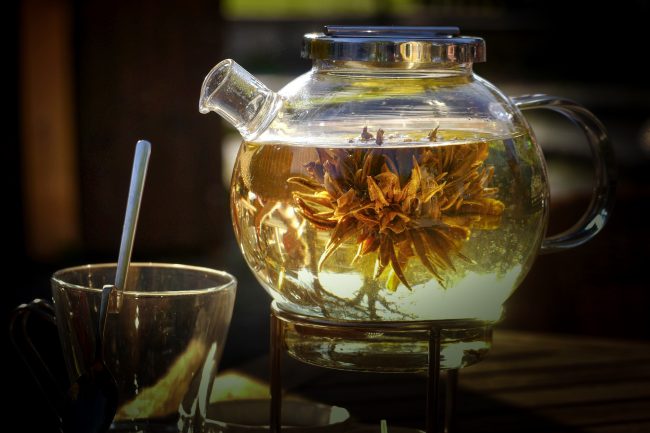

 Restore with rest
Restore with rest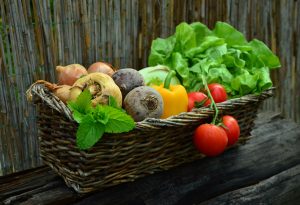 '
'




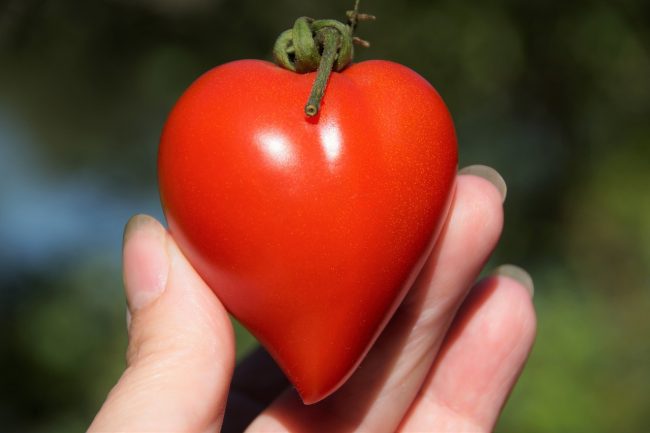
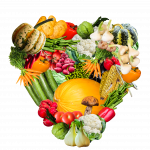 Diet:
Diet:  Exercise:
Exercise:  Aim for 10,000 steps:
Aim for 10,000 steps:  Inactivity has consequences:
Inactivity has consequences:  Water:
Water: 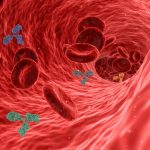 When dehydrated the blood volume - or the amount of blood circulating through the body, decreases. To compensate, the heart beats faster, increasing the heart rate and blood pressure.
When dehydrated the blood volume - or the amount of blood circulating through the body, decreases. To compensate, the heart beats faster, increasing the heart rate and blood pressure. Stress less:
Stress less: 
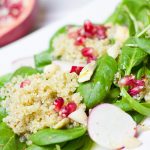 The pomegranate juice and pomegranate extracts have a long history of safety, and various pomegranate constituents have been developed as botanical dietary supplements to provide an alternative and easy form for consumption (2). Human-based studies have shown favourable results and have signalled pomegranate's potential as a protective agent for several diseases. (5)
The pomegranate juice and pomegranate extracts have a long history of safety, and various pomegranate constituents have been developed as botanical dietary supplements to provide an alternative and easy form for consumption (2). Human-based studies have shown favourable results and have signalled pomegranate's potential as a protective agent for several diseases. (5)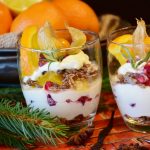 With its affinity to helping absent-mindedness and memory loss, pomegranate seems to have a prominent platform. Phytonutrients such as pomegranate (Punica granatum, Lythraceae) and ellagic tannins may reduce oxidative stress and inflammation, and thus could help maintain brain health (1). These symptoms can result from changes in oxidative damage and inflammation in the brain. Several nutrients have been shown to help maintain cognitive function during aging.
With its affinity to helping absent-mindedness and memory loss, pomegranate seems to have a prominent platform. Phytonutrients such as pomegranate (Punica granatum, Lythraceae) and ellagic tannins may reduce oxidative stress and inflammation, and thus could help maintain brain health (1). These symptoms can result from changes in oxidative damage and inflammation in the brain. Several nutrients have been shown to help maintain cognitive function during aging.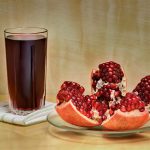 Another study stated that the polyphenols, when present in a juice but in a supplement, can reduce the glycaemic response of bread; and can also exhibit the potential to further modulate blood glucose (sugar) levels in the period after dinner or lunch (4).
Another study stated that the polyphenols, when present in a juice but in a supplement, can reduce the glycaemic response of bread; and can also exhibit the potential to further modulate blood glucose (sugar) levels in the period after dinner or lunch (4).

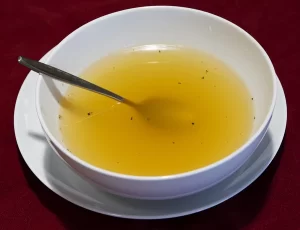
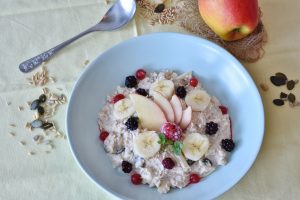 Live bacteria from non-flavoured (fermented) yoghurt
Live bacteria from non-flavoured (fermented) yoghurt  Eat lots of seasonal fruits and vegetables
Eat lots of seasonal fruits and vegetables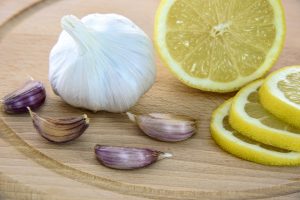 Increase your intake of Garlic
Increase your intake of Garlic Heavy meals
Heavy meals 